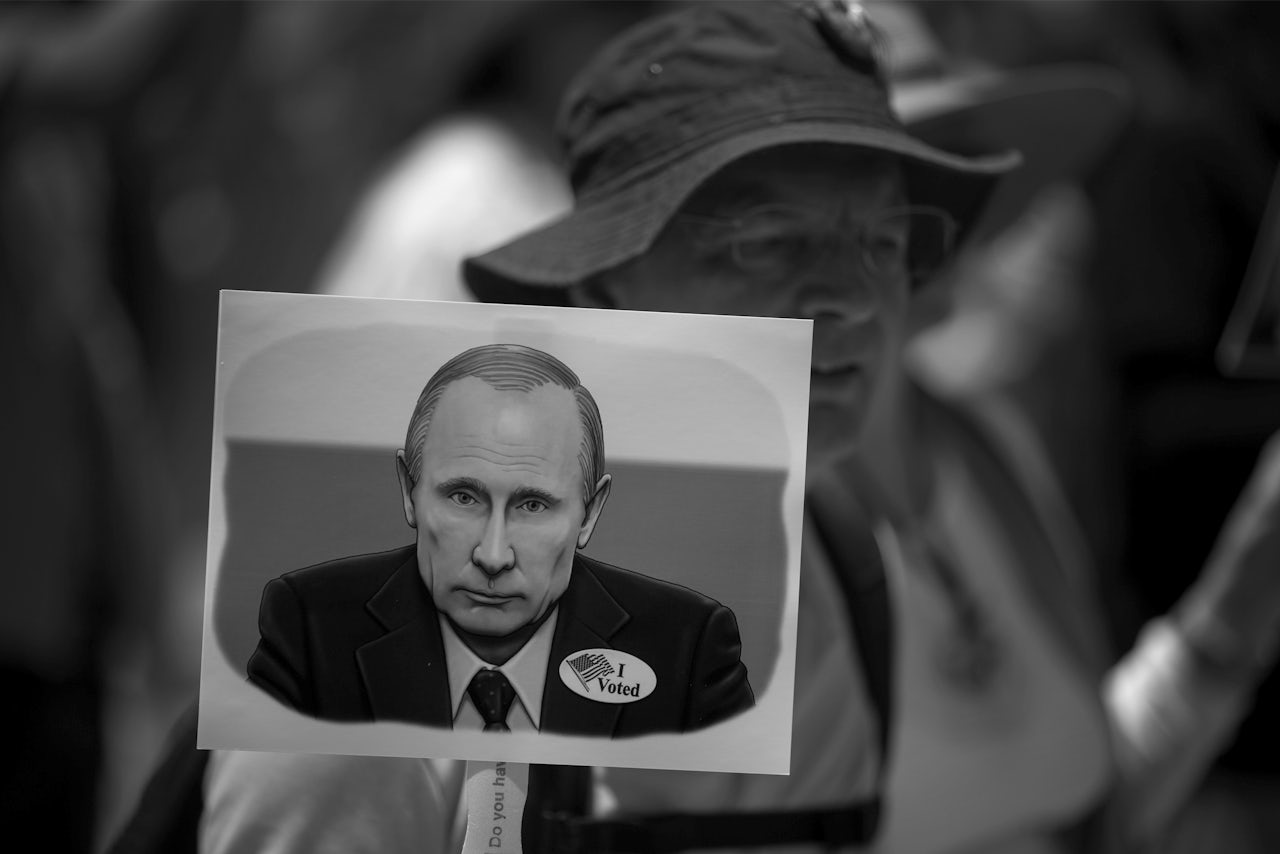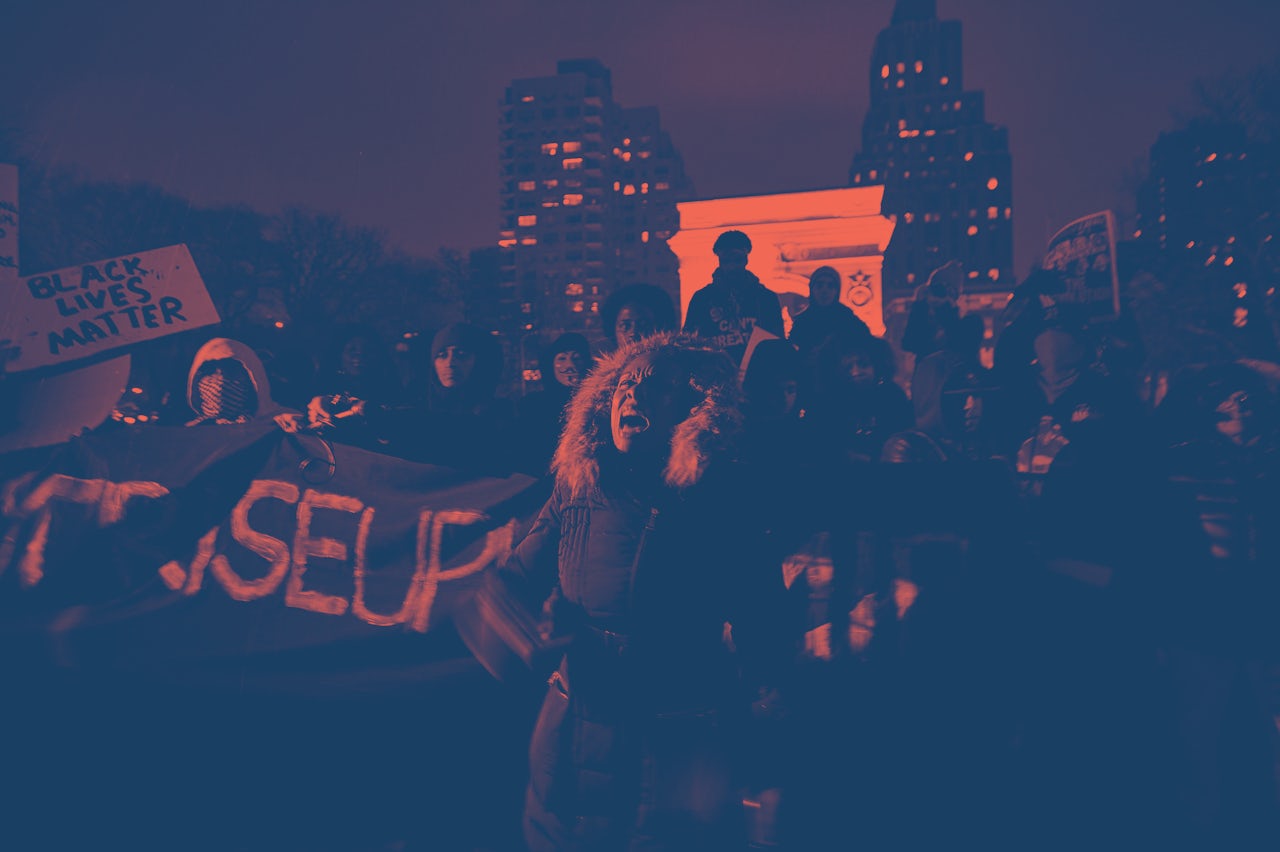It’s undeniable that the Russian government interfered in the 2016 U.S. presidential election to some degree. The extent of this interference, as well as whether Russian meddling affected the election’s outcome, is the subject of ongoing investigations by the Congressional intelligence committees, the FBI, and the CIA. But recent reporting in respectable mainstream outlets on what, exactly, Russia did to undermine our election is beginning to sound like the ramblings of conspiracy theorists who claim Russia has its claws in activist groups across the country, even as reports suggest otherwise.
Last month, The Washington Post reported that Russian operatives spent an estimated $150,000 on 3,000 political ads on Facebook, some of which promoted anti-racist activist groups like Black Lives Matter. That and other revelations since then reinforce the impression that Russia was engaging in a wide range of astroturfing experiments with varying degrees of success. The ensuing media frenzy, however, would have you believe that Russian meddling was pervasive — that protesters were duped into working against American interests on Russia’s behalf, while ordinary Americans were suckered into signing up for fake causes. Such coverage simultaneously sounded alarm bells about Russian propaganda while revealing that, in most documented cases, very few people actually fell for this propaganda in the first place.
In a typical story, BuzzFeed reported this week that Russian trolls were behind @Native_Americans_United_, an Instagram account with 33,000 followers that regularly posted about the indigenous protests against the Dakota Access Pipeline. (There’s no telling how many of the account’s followers were real; after all, anyone can pay to boost their follower count.) The post’s original headline, “Russian Troll Efforts Extended To Standing Rock,” was quickly changed to the more measured “How Russians Attempted To Use Instagram To Influence Native Americans” — perhaps because there was no evidence that the Instagram account in question did anything more than post poorly-made memes, like this open letter shaming racists for their consumption of foreign products and colonization of native land, as if that’s not what racists have been doing for centuries.
Last month, The Daily Beast reported that Russians “impersonated real American Muslims to stir chaos” online. One of the fake Facebook pages reportedly had more than 268,000 followers — again, a number that could easily have been artificially inflated — and Russian operatives attempted to use this social media leverage to organize real-life rallies. Despite the trolls’ best efforts, there was “no evidence anyone turned out for the ‘Support Hillary, Save American Muslims’ march in July 2016,” The Daily Beast reported. Earlier this month, The Daily Beast found evidence of Russian meddling on YouTube, where a pair of Kremlin-backed vloggers uploaded videos denouncing the Clintons and praising both Trump and Bernie Sanders. “This is time for change. This is why I say that let our vote go for Trump. Because this man is a businessman. He’s not a politician. We can have deal with him,” one of the men said in an August 2016 video. The pair’s account appeared to have 48,000 fans, yet their most-watched videos “only racked up hundreds of views.” According to Twitter user @eshaLegal, who tracked down the YouTube page shortly after the Daily Beast report was published, the account hadn’t even hit 300 subscribers, and most videos view counts were still in the double digits.
A YouTube channel with 13 views and 261 subscribers apparently swayed the election pic.twitter.com/2HpNPPWhEI
— Esha 🎃 👻🌹 (@eshaLegal) October 9, 2017
CNN made the most ridiculous claim by far, reporting earlier this month that “even Pokémon Go” was used as part of the “extensive Russian-linked meddling effort.” Russian operatives reportedly created an anti-police brutality campaign called “Don’t Shoot Us” — and encouraged supporters to “take action” by finding Pokémon “near locations where alleged incidents of police brutality had taken place.” The poorly-thought-out campaign was encouraging people to catch Pokémon at these locations, name them after victims of police brutality, take a screenshot, and post it online in the hopes of winning a $75 Amazon gift card.
Unsurprisingly, this sophisticated, multi-faceted propaganda campaign didn’t work. CNN wasn’t able to find any evidence that Pokémon Go users entered the contest, a fact that was buried deep in the extensive report. CNN’s own reporting also reveals that because of their connections to legitimate civil rights and advocacy groups, many local activists across the country weren’t duped by Russian propaganda. Brandon Long, the state party chairman of the Minnesota Green Party, told the outlet he remembered hearing about the planned “Don’t Shoot Us” event but didn’t participate. “We frequently support Black Lives Matter protests and demonstrations and we know pretty much all the organizers in town and that page wasn't recognized by anyone,” Long said.
In most cases, virtually no one was watching the Russian-funded videos, attending the Russian-organized protests, or playing the Kremlin’s bizarre, macabre police brutality-themed Pokémon Go game. The response to these largely unsuccessful attempts at interference, however, have largely been to blame Russia for stoking racial tensions in the U.S., a Cold War-era tactic revived for the twenty-first century. Michael McFaul, who is now a director of the Freeman Spogli Institute for International Studies at Stanford University, told the Washington Post last month that the Kremlin’s goal is to “encourage discord” in American civil society. “More generally, Putin has an idea that our society is imperfect, that our democracy is not better than his, so to see us in conflict on big social issues is in the Kremlin’s interests.” That may be true, but these conflicts regarding “big social issues” are more than a mere political spectacle that benefits the Kremlin.
This sensationalized reporting helps no one — except, of course, those who have a political interest in discrediting valuable, valid activism.
It’s worth noting that not all Russian efforts to clandestinely connect with unwitting American activists were unsuccessful. Last week, BuzzFeed’s Hayes Brown and Rosalind Adams spoke to people who were, in their words, “tricked into working for Russia.” There are three activists named in the story — one of whom never worked for Russia at all. Former Adbusters editor and Occupy Wall Street co-founder Micah White told BuzzFeed he was interviewed by BlackMattersUS, a group later identified as a Russian astroturfing attempt, but never worked with them and ignored most of their emails.
BuzzFeed did identify two activists who were duped by Russia: Conrad James, who organized two anti-police brutality rallies in the months leading up to the election on behalf of a group he later learned was backed by the Kremlin, and Omowale Adewale, who unknowingly received Russian funding to teach self-defense classes through Black Fist, a group linked to a Russian troll farm, between March and May of this year. James’ second rally, in September 2016, was reportedly attended by 80 people, but pictures from his event suggest a smaller number of participants. Most of Adewale’s classes, which primarily took place after Trump’s inauguration, were attended by a dozen people at most, Adewale told BuzzFeed. It’s unclear how these classes are related to Russian efforts to undermine the election, since Adewale was reportedly contacted by Russian operatives in January, after the election was over. Was the purpose of these Russian-funded classes to make people feel unsafe by making them think they needed to learn self-defense? Or was it to make Trump supporters feel like the other side was preparing for violence? Either way, the post-election uptick in hate crimes was not a Russian invention.
This sensationalized reporting helps no one — except, of course, those who have a political interest in discrediting valuable, valid activism. Right-wingers including former Breitbart editor John Notle, Pizzagate truther Jack Posobiec, and all-around bad guy Mike Cernovich have already latched on to the idea that Russia and so-called “social justice warriors” are working together to undermine American society. Mark Krikorian, executive director of the Center for Immigration Studies, a right-wing, anti-immigrant think tank, has speculated that “DREAMer” activism is the work of Russian trolls, too.
There’s obviously a reason to report on Russian attempts to interfere in American elections, even if those attempts are largely unsuccessful. But reporting that over-emphasizes the role Russian propaganda played in influencing left-wing activists does little more than discredit legitimate social movements.


